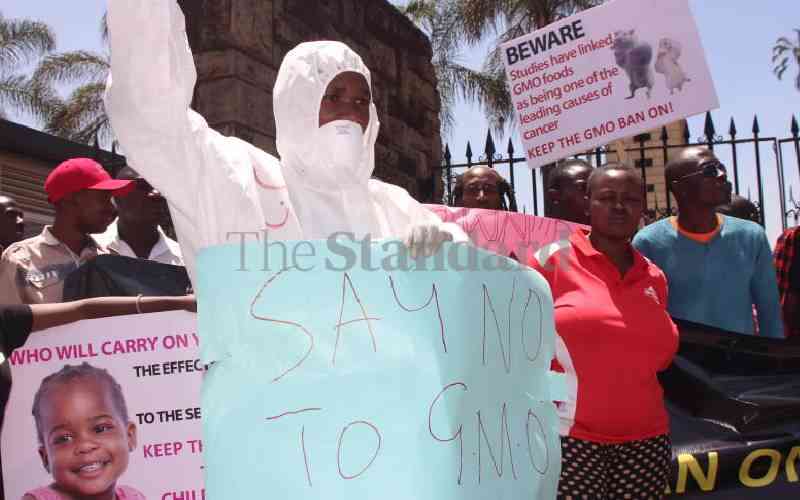×
The Standard e-Paper
Home To Bold Columnists

Doubts on the government's willingness to listen to the voice of the majority in the controversial genetically modified organisms (GMOs) debate linger even as public participation continues.
The National Biosafety Authority (NBA) hopes that by the end of January next year, Kenyans will have pronounced themselves on the issue of BT maize. The collection of views is coming hot on the heels of a major controversy triggered by attempts to introduce GMOs over the years.







